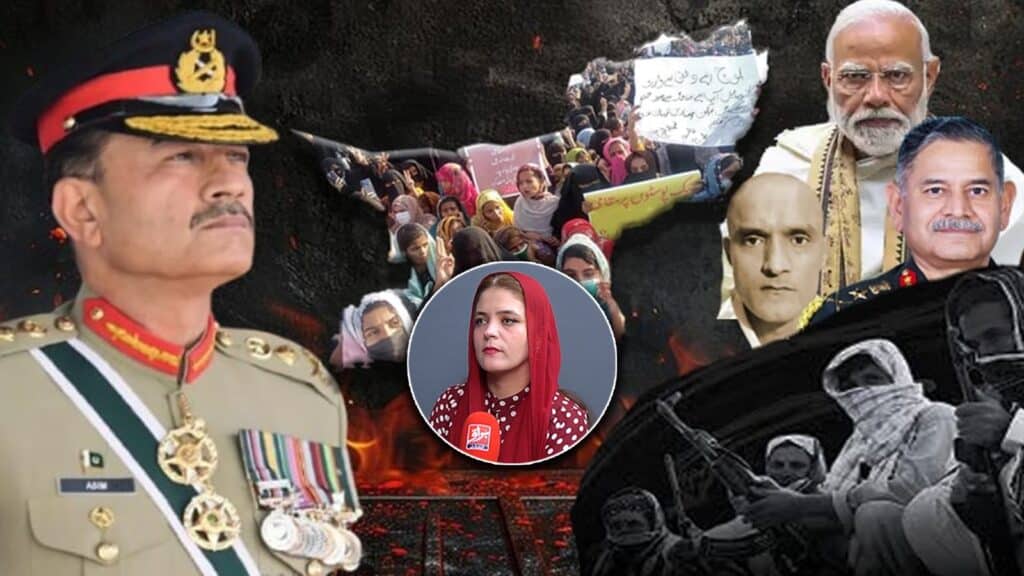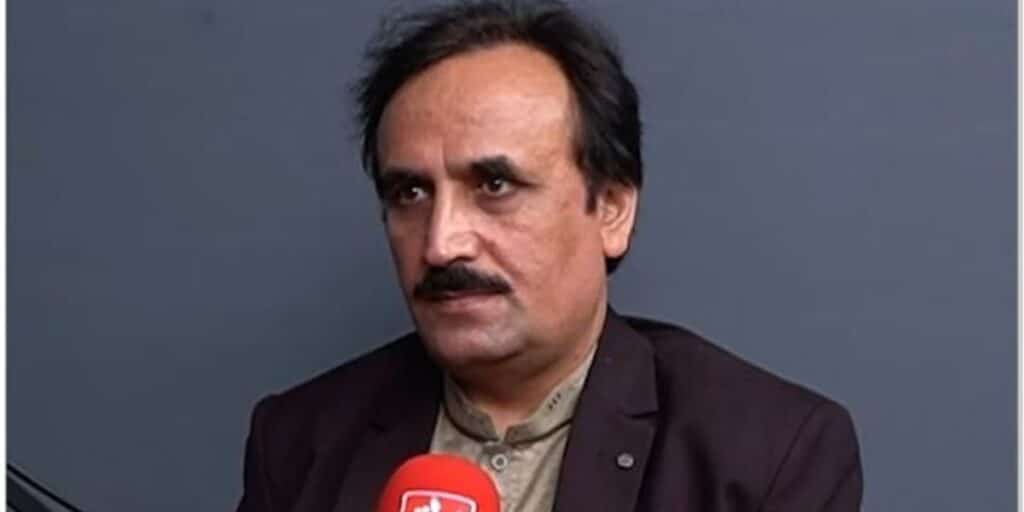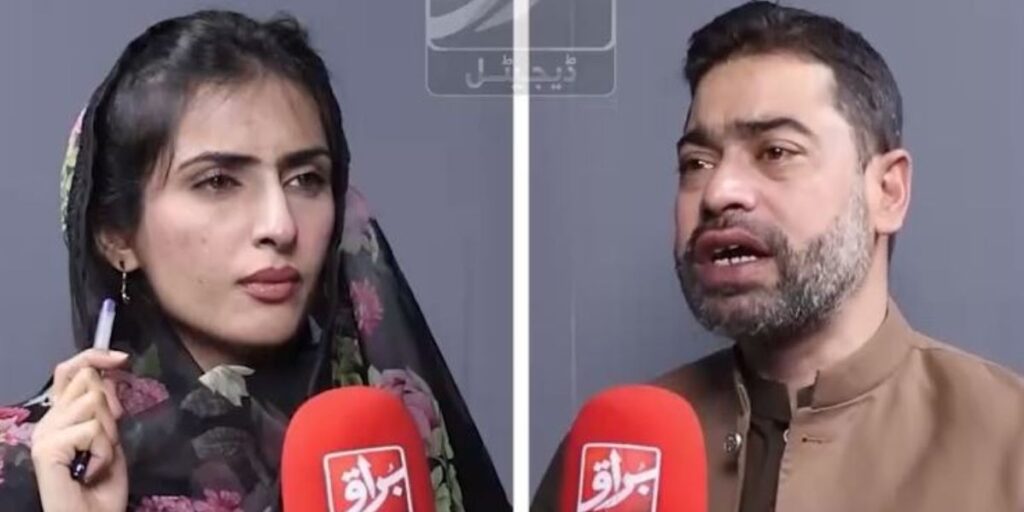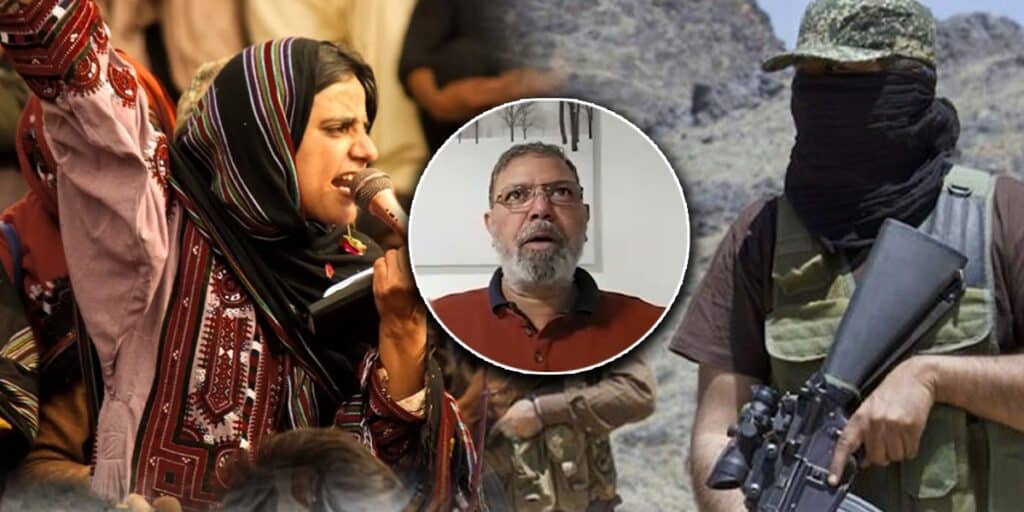By: Tania Bazai
For years now, a dangerous and deliberate propaganda campaign has been orchestrated against Pakistan in the name of “missing persons” in Balochistan. These narratives, often amplified by banned organizations and foreign-sponsored proxies, are not only misleading but are actively undermining the very social fabric and national security of our country.
Let me be clear: the case of Zeeshan Zaheer is a glaring example of how facts are twisted to malign the state. Claims are being made that Zeeshan was forcibly disappeared by the state and later found dead. But the truth is, back in 2015, Zeeshan voluntarily joined militant camps in the mountains. He was not a victim of enforced disappearance; he was a trained radical who actively brainwashed Baloch youth to join anti-state militias. Despite repeated warnings, he continued his path until he became part of a separatist armed group.
And what of his father, Zaheer Ahmed? Zeeshan was often seen protesting with BSO-Azad, a banned student organisation with direct ties to foreign intelligence operations, particularly those of India. This group has openly promoted secessionist ideology and worked to destabilize Balochistan. When such a group becomes the mouthpiece for someone’s disappearance or death, we must ask: what was their relationship with Zeeshan and his family? Why are they publishing statements in his favour?
If we momentarily assume, for argument’s sake, that the state was involved in Zeeshan’s fate, it still doesn’t explain why a banned terror-linked group is campaigning for him. The real question is: who benefits from Zeeshan Zaheer’s death? Certainly not the state. The real beneficiaries are those groups seeking to exploit such incidents to fuel anti-state sentiment and destabilize the region.
There is a pattern we cannot ignore. Many individuals once declared “missing” later resurface as members of terrorist organizations. These groups then claim them proudly as martyrs on their own websites. Isn’t it suspicious that the same figures used to attack the state are later admitted to have died while carrying out attacks under foreign-backed militant commands?
I urge the public to reflect deeply: why is BSO-Azad—an officially banned outfit—so vocal about Zeeshan? Why are they silent when real atrocities happen, like the recent incident in Mastung, where Fitna al Hindustan terrorists looted and torched a local bank? The victims of that crime weren’t state officials or outsiders—they were poor Baloch locals. Yet, not a word of condemnation from the so-called human rights defenders. Their selective outrage exposes their bias and confirms their foreign-scripted agenda.
The truth is, the funding lines of these proxies have dried up, and now they are turning to criminal acts like looting banks to finance their agenda. The leadership of BYC (Baloch Yakjehti Committee) is behind bars, and their frustration is now translating into violence against their own people. This isn’t resistance—this is betrayal.
Let’s also ask why these groups never raise their voice for real Baloch grievances—poverty, education, employment, and healthcare. Have you ever heard them demand jobs for Baloch youth or better healthcare in Gwadar and Panjgur? No. Their focus has always been on “Azad Balochistan”—a goal crafted in New Delhi and Tel Aviv, not Quetta or Turbat.
If we truly care for Balochistan, we must support the state’s institutions. We must demand and accept house-to-house operations if necessary. We must stand with our security forces because these terrorist networks thrive in the shadows. Let them come and investigate—we have nothing to hide. Only those with links to insurgents should worry.
The only way forward is to become a hard state, firm, uncompromising in the face of terror. Just look at countries like China, Russia, and North Korea. They ensured their national security by being resolute, not apologetic. Until Pakistan becomes a hard state, terrorism, extremism, and separatism will continue to exploit our internal vulnerabilities.
Every citizen—Baloch, Sindhi, Punjabi, Pashtun—has equal rights in this country. Our struggle should be to demand services, education, and development, not to destroy our own institutions or burn our own banks. Balochistan will only rise when we stop blaming the state and start holding the enemies of peace accountable.
Also Read: Looters of banks, traitors of Balochistan
The time has come for us to draw a clear line. Either we stand with the state, or we allow these proxies of Fitna-e-Hind to drag Balochistan into chaos. I, for one, have made my choice.





